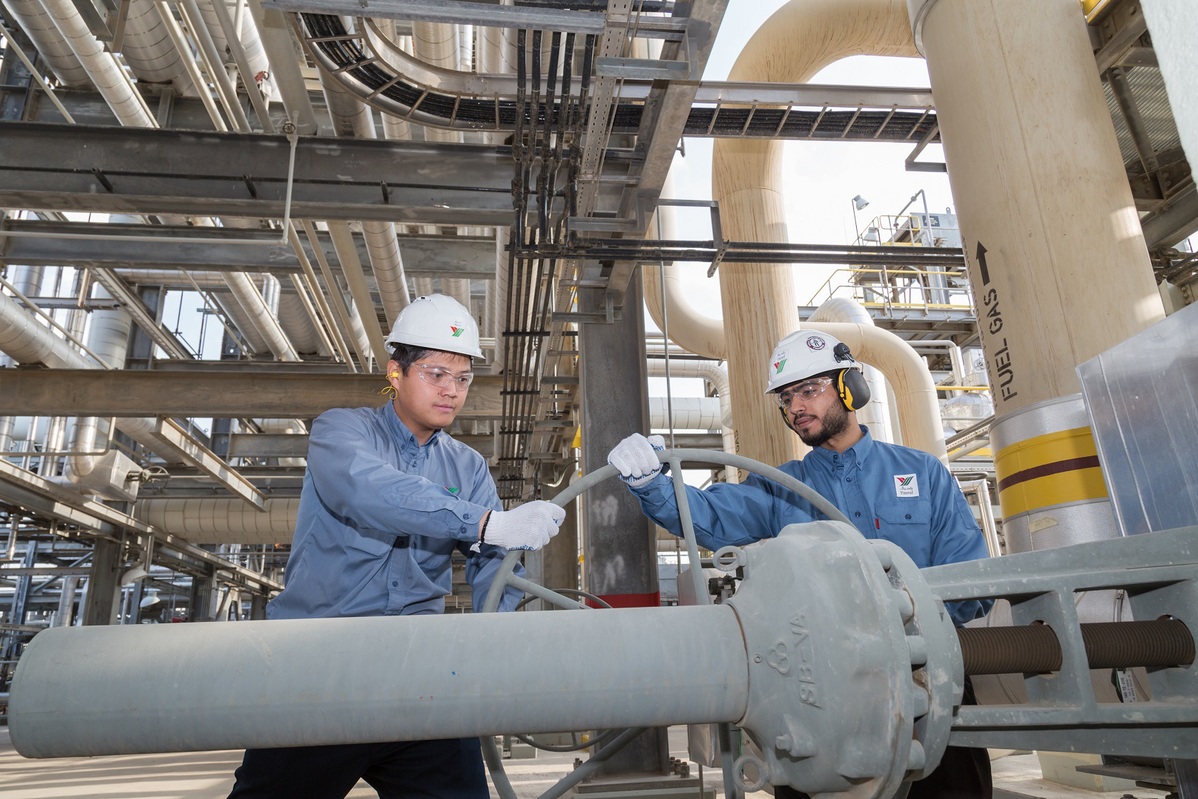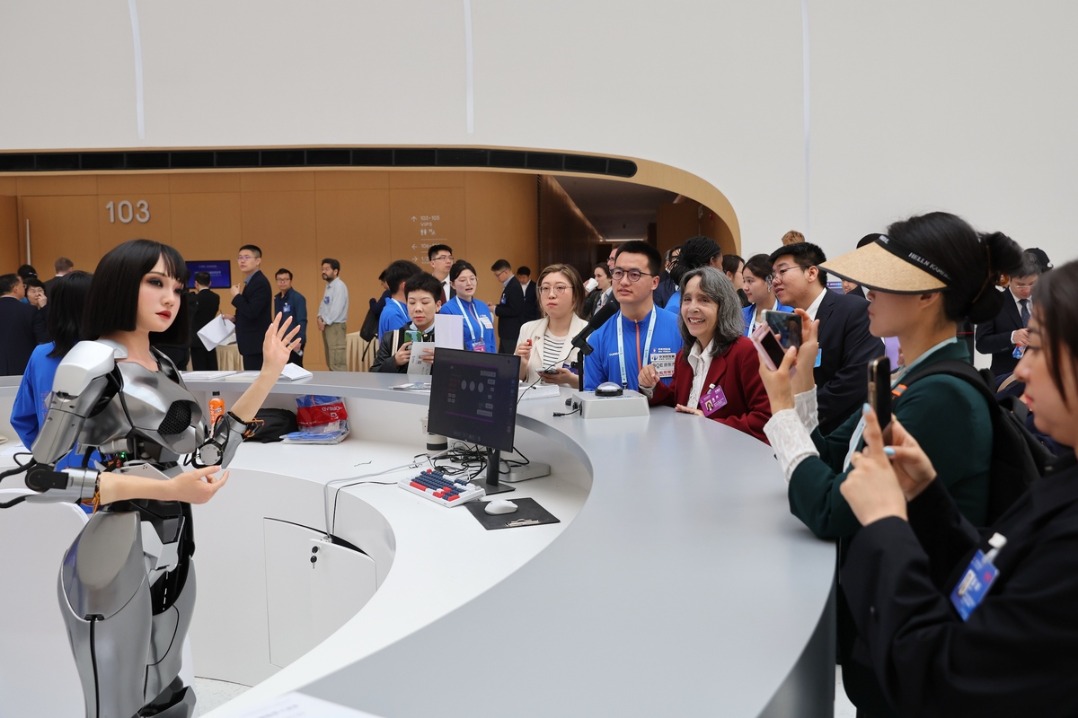Refinery shows energy ties win-win for China, Saudi


RIYADH - Situated on Saudi Arabia's western coast of the Red Sea, Yanbu is famous for its advanced petrochemical industry, featuring three major refineries lining up along the beautiful beach.
Among them is the Yanbu Aramco Sinopec Refining Company or YASREF, jointly established by China Petrochemical Corporation (which is better known as Sinopec) and Saudi Aramco.
The Yanbu joint venture is regarded as the world's most advanced, safest and efficient refinery.
For the past three years, YASREF has been a good example for the energy cooperation between China and Saudi Arabia and the Arab world as a whole, with its smooth operation, advanced technologies and high efficiency.
"In the past three years, YASREF has earned prestige with advanced processes, fast construction, high quality and safety, as demonstrated by its winning the Platts' 'Construction Project of the Year' award in 2015," said Li Xihong, chief representative of Sinopec's Saudi branch.
China and Saudi Arabia inked an agreement on the joint venture in 2012 with a total investment of $8.6 billion, with 62.5 percent of the equity interest owned by Saudi Aramco and 37.5 percent by Sinopec.
YASREF went into test operation in April 2015, and started production on Jan 20, 2016 when it held the launch ceremony attended by visiting Chinese President Xi Jinping and Saudi King Salman bin Abdulaziz Al Saud.
The joint venture has earned profits after starting production in 2016. It has produced 49.97 million tons of crude oil, and fine gasoline and diesel oil of 39.98 million tons, which were sold to Europe and Asia.
YASREF has become a model for the China-Saudi energy cooperation and future bilateral cooperation within the Belt and Road Initiative, Li said.
The initiative, proposed by China in 2013, refers to the Silk Road Economic Belt and the 21st Century Maritime Silk Road which aim at building a trade and infrastructure network connecting Asia with Europe and Africa along the ancient trade routes of the Silk Road.
"YASREF corresponds with both countries' development strategies, which is one of the major reasons for its success," Li said.
Indeed, Saudi expects to carry out industrial restructuring and upgrading through increasing non-oil revenues, while China is promoting energy cooperation with oil-producing Arab countries under the Belt and Road Initiative, Li said.
YASREF's success is also due to the high internationalization of the operations by both Sinopec and Aramco, as both sides agreed on using English as their working language, Li said.
He further said that the cultural exchanges have served as a bridge linking the workers from both sides, who have cultivated friendship.
"Our Saudi colleagues admire Chinese culture, and we are interested in and respect Saudi traditional customs," said Wang Song, a Sinopec engineer, who has worked in Yanbu for more than a year.
During the Chinese traditional Spring Festival in February this year, YASREF held a special Chinese Cultural Day event to celebrate the Chinese new year holiday, which was also warmly welcomed by the Saudi colleagues, Wang said.
Even the local government invited the Chinese workers to hold a similar event for local residents after learning about the company's celebration.
"Chinese colleagues are like our brothers, we take care of each other," said Hosam Alghamdi, a Saudi manager of the public relations department of YASREF. "The company is more like a cultural integration rather than just business cooperation."
YASREF's president, Abdallah Alsubail, who has worked in China for more than eight years, said the project has set an example for the Saudi goal of developing industries, increasing non-oil revenues, and creating job opportunities.
Sinopec, which owns advanced refining skills and expertise, has sent top-notch engineers to YASREF, making great contribution to the refinery's smooth operation by improving the workers' skills and efficiency, Alsubail said.
YASREF has also created a lot of job opportunities for Saudi Arabia, by employing 1,472 workers, of whom 1,114 are Saudis.
Zhou Xinqian, vice-president of YASREF, said that the company is China's largest investment project in the Middle East, and also Sinopec's first overseas joint venture in refining.
The project's success is of great strategic significance to China in terms of opening up new overseas markets for its refining industry and chemical engineering services, Zhou said.
Li said YASREF's board of directors will convene a meeting in Shanghai, China, this month to formulate a plan for its production and operations in the following years, as both sides are confident of their future cooperation.




































